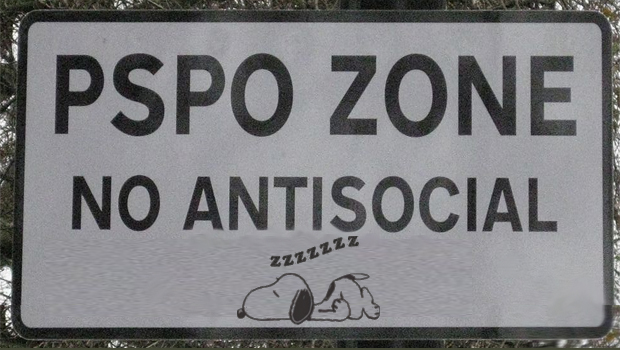Remaining In Vehicles Is NOT Anti-Social Behaviour
Guest Author ANDY STRANGEWAY bangs another nail in the coffin of the Leeming Bar PSPO.
~~~~~
Remaining in vehicles is not anti-social behaviour despite the fact that Hambleton District Council (HDC) have claimed it is to ban overnight parking at Leeming Bar. They even used anti-social behaviour legislation to achieve this. We are witnessing corruption before our very eyes.

The text above confirms what is anti-social behaviour in relation to vehicles. This confirms remaining in vehicles is not anti-social behaviour.
There are three main categories for anti-social behaviour, depending on how many people are affected:
- Personal antisocial behaviour is when a person targets a specific individual or group.
- Nuisance antisocial behaviour is when a person causes trouble, annoyance or suffering to a community.
- Environmental antisocial behaviour is when a person’s actions affect the wider environment, such as public spaces or buildings.
Under these main headings antisocial behaviour falls into one of 13 different types:
- Vehicle abandoned: This covers vehicles that appear to have been left by their owner, rather than stolen and abandoned. It includes scrap or ‘end of life’ vehicles and those damaged at the scene of a road traffic collision that have been abandoned and aren’t awaiting recovery.
- Vehicle nuisance or inappropriate use: This relates to vehicles being used in acts such as street cruising (driving up and down the street causing annoyance and bothering other road users), vehicle convoys and riding or driving on land other than a road. It also covers the misuse of go-peds, motorised skateboards and electric-propelled cycles, and the unlicensed dealing of vehicles where a person has two or more vehicles on the same road within 500 metres of each other.
- Rowdy or inconsiderate behaviour: This refers to general nuisance behaviour in a public place or a place to which the public have access, such as private clubs. It does not include domestic-related behaviour, harassment or public disorder which should be reported as crimes.
- Rowdy or nuisance neighbours: This covers any rowdy behaviour or general nuisance caused by neighbours, including boundary and parking disputes. It also covers noise nuisance from parties or playing loud music.
- Littering or drugs paraphernalia: This includes fly posting and discarding litter, rubbish or drugs paraphernalia in any public place.
- Animal problems: This covers any situation where animals are creating a nuisance or people’s behaviour associated with the use of animals is deemed as antisocial. It includes uncontrolled animals, stray dogs, barking, fouling and intimidation by an animal.
- Trespassing: This is any situation in which people have entered land, water or premises without lawful authority or permission. It ranges from taking an unauthorised shortcut through a garden to setting up unauthorised campsites.
- Nuisance calls: This covers any type of communication by phone that causes anxiety and annoyance, including silent calls and intrusive ‘cold calling’ from businesses. It does not cover indecent, threatening or offensive behaviour which should be reported as crimes.
- Street drinking: This relates to unlicensed drinking in public spaces, where the behaviour of the persons involved is deemed as antisocial. It also covers unplanned and spontaneous parties which encroach on the street.
- Prostitution-related activity: This relates to any activity involving prostitution such as loitering, displaying cards or promoting prostitution. It may also refer to activities in and around a brothel that impact on local residents. It does not include ‘kerb-crawling’ which should be reported as a crime.
- Nuisance noise: This relates to all incidents of noise nuisance that do not involve neighbours (see ‘Nuisance neighbours’ above).
- Begging: This covers anyone begging or asking for charitable donations in a public place, or encouraging a child to do so, without a license. Unlicensed ticket sellers at or near public transport hubs may also fall into this category.
- Misuse of fireworks: This will include the inappropriate use of fireworks, the unlawful sale or possession of fireworks and noise created by fireworks.
Police Confirm Facts
Both the Met Police and Thames Valley Police confirm the facts.
Formal Complaint
I have registered a formal complaint against HDC for using anti-social behaviour legislation to ban remaining in vehicles despite it not being anti-social behaviour.












